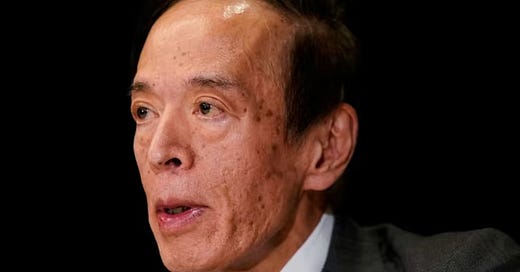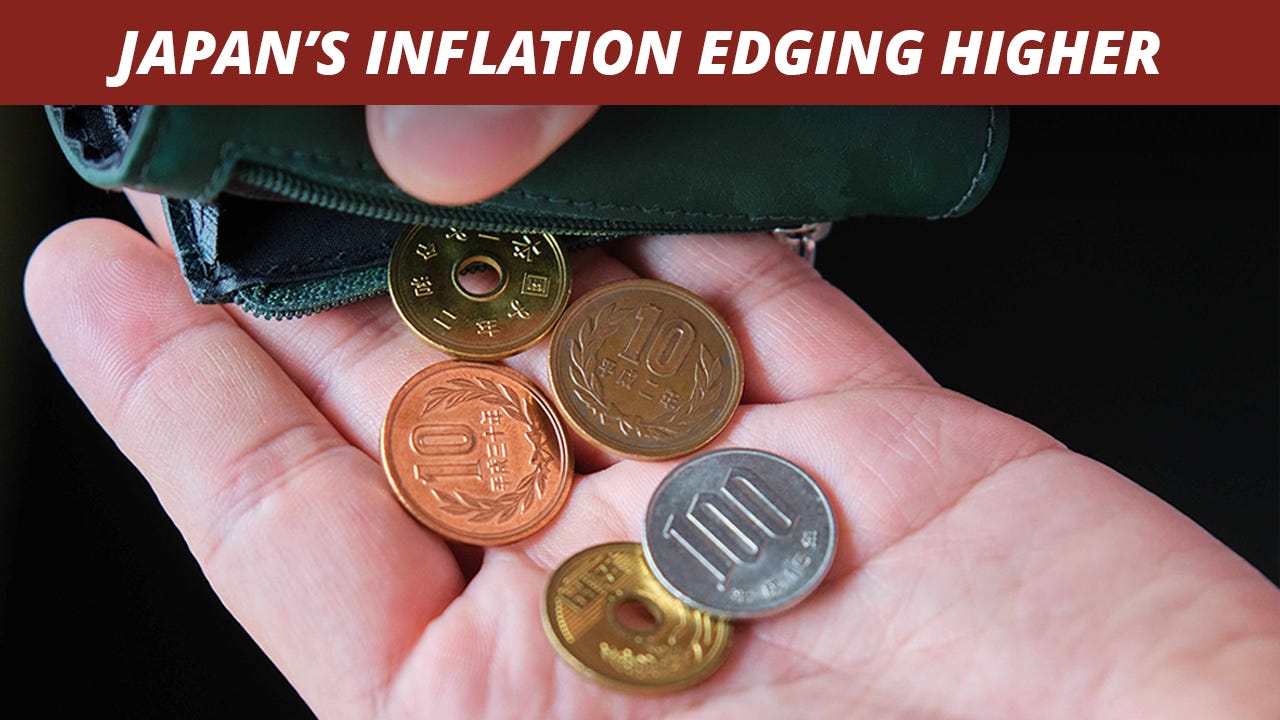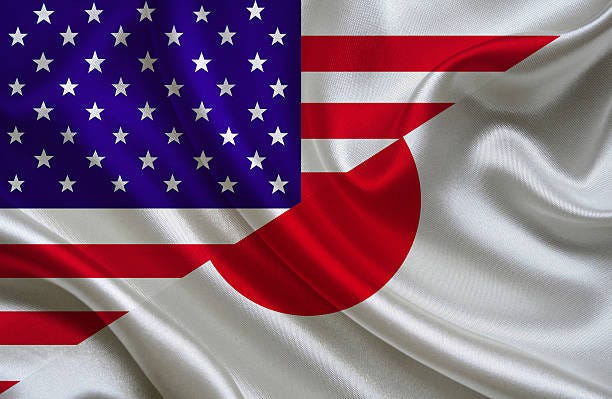When Ronald Reagan signed into law the Export Trading Company Act of 1982, every CEO in the United States thought they could be the next Manubini. I know, I was an instrumental part of making it happen. I sold bulk California wine to the Japanese in exchange for steel that was eventually processed and sold in the United States. During these times deals of any type or kind were difficult. Not only was the Dollar trading at record highs due to Volcker’s attack on inflation, we only had a couple sources viable at representing the other side.
One of them was Japan but a critical element prevailed in just about all negotiations. Japanese representatives did not know how to use or say the word “no”. In a good way we learned a lot but unfortunately our efforts were significantly hampered. Other than this wine deal and a couple transactions between Israel and the Arab world very little of what we wanted to accomplish happened. Such is life and that’s how the world was. Nothing has really changed and Japan, obviously a closed, internally governed society, wants to keep it that way by controlling everything it possibly can.
Unfortunately they do not have the power to control what they are creating, inflation. It’s taken the Japanese years to escape from their “deflationary” environment. I could talk about this extensively but I’ll save you the time. By keeping their interest rates at negative levels they’ve emerged from monetary problems of this nature. Unfortunately they’ve created something equally problematic, inflation. With a declining currency it is here to stay unless they take action band take it now.
Japan Is Between A Rock & A Hard Place
The Japanese Yen was down for a third straight day and has ‘declined’ 1.5% this week. The USD/JPY closed trading at 155.50 on wednesday. On Thursday morning, the BoJ will release the “Summary of Opinions” from the April meeting.
Japanese officials remain mum about suspected interventions on the currency markets last week. The Yen broke below the 160 line before recovering, surging 3.4% last week. However, the Yen’s strength did not take long to dissipate. Previous ‘interventions' by Tokyo boosted the Yen for only a short time and that appears to be the trend again.
The Bank of Japan and the Ministry of Finance have weighed into the crisis earlier today. BoJ Governor Ueda said the central bank could take “monetary” action if the Yen’s depreciation has a significant effect on prices. He stated his readiness to tighten policy, saying that if inflation was higher than expected, it would just be appropriate to adjust interest rates. Ueda’s remarks may be an attempt to provide the Yen with a boost by sending a message that further rate hikes are on the table if inflation moves higher. Guess what, it’s inevitable and it’s happening.
Finance Minister Suzuki expressed “strong concern” over the weak Yen and warned that he was ready to “intervene” to boost the Yen. It seems questionable whether the warning will have much effect. The Yen posted strong gains last week after suspected interventions but has already coughed up close to half of those gains. Barring another intervention, the Yen could be on its way back to the 160 level. I don’t think so but my experience dealing with the Japanese leads me to be concerned even though I initiated a position looking for the Yen to strengthen at the close at 155.50.
The Warning Is Out
The Bank of Japan may take monetary policy action if Yen falls significantly affecting prices, governor Kazuo Ueda said on Wednesday, offering the “strongest” hint to date the currency's relentless declines could trigger another interest rate hike. No kidding.
Finance Minister Shunichi Suzuki also voiced "strong concern" on Wednesday over the negative impact of a weak Yen, like boosting import costs, and repeated Tokyo's readiness to intervene in the market to prop up the sagging currency. It’s about time.
These remarks, which followed a meeting between Ueda and Prime Minister Fumio Kishida on Tuesday, underscore the resolve of the Japanese government and central bank to cooperate in keeping damaging Yen falls in check. Something must be done.
"We need to be mindful of the risk that the impact of currency volatility on inflation is becoming bigger than in the past," as firms are already raising prices and wages, Ueda told parliament on Wednesday. "Exchange-rate moves could have a big impact on the economy and prices. There's a chance we may need to respond with monetary policy," he said. The remarks compared with those Ueda made after the BoJ's policy meeting on April 26, when he said the Yen's recent falls did not have an immediate impact on trend inflation. I told you it was tough to deal with the Japanese. This proves it.
Ueda's post-meeting comments have been cited by some traders as having accelerated the Yen's declines by heightening market expectations the BoJ will hold off on raising interest rates from current levels around zero for some time. I think they are wrong. I have a lot of firepower and I’ll continue to expand my position if it goes against me.
"The BoJ doesn't want to give the impression it could be forced to hike rates to deal with the weak Yen. But it also needs to show it is paying heed to the economic impact of Yen falls," said Izuru Kato, chief economist at Totan Research. The governor, like everyone else involved, probably tried to strike that balance by changing the tone of his remarks somewhat. It’s time for Japan to “bite the bullet” and raise interest rates.
After the yen hit a 34-year low of 160.245 per dollar on April 29, Japanese authorities are suspected to have spent more than 9 trillion Yen, $58.4 billion, intervening in the market last week to prop up the currency. The dollar closed at 155.50 yen creeping up from a roughly one-month high of 151.86 on May 3.
Ueda repeated the central bank will "adjust the degree of monetary accommodation" - code for rate hikes, according to BoJ watchers, if trend inflation accelerates toward its 2% target as it projected last month. Stop kidding yourselves, it’s going higher. He also said BoJ won't necessarily wait for inflation to reach its overall target one-and-half to two years ahead, in raising rates. Maybe it’s time our Fed truthfully represents that a 2% inflation target in the United States is years away if ever.
"If trend inflation appears to accelerate as we project, we will adjust the degree of monetary accommodation accordingly," Ueda said, signaling the chance of raising rates near-term and in several stages in coming years.
Many market players expect the BoJ to raise interest rates again sometime this year, having ended negative interest rates and other remnants of its radical stimulus a few months back in March. Speaking in the same parliament committee, finance minister Suzuki said authorities were ready to take "all means available" to deal with excessive Yen falls that hurt households and companies by inflating import costs.
So What’s Next Worldwide
When you look at the world, with a macroeconomic, geopolitical, geoeconomic lens, it is pretty easy to say that we created this mess as we tried to correct our prior messes. I think it all started with Alan Greenspan here in the United States. His actions, or lack thereof, helped create the 2008 Financial Crisis. Those following him had their hands full basically taking action to pump money into a failed system. The problem they had, exacerbated by the “mushroom” loving Yellen, was that they had no idea when to stop.
At first Jerome Powell was heading in the right direction. Politically his actions were contrary to growing the economy but he didn’t have long to worry. COVID-19 hit the world and every central bank lowered their interest rates and kept printing money. It was obvious that inflation was going to soar. Now it’s time to correct the mistake that corrected the mistake that corrected the prior mistake. At least Powell understands it will take time. The problem he has, that unless we have a major recession, maybe even a depression, it’s going to take many years.
I’ve been a U.S. Treasury buyer at 5%+ for years. Together with holding gold bullion, I have about 60% of the money I manage allocated in this manner. I am long “dividend” paying stocks, especially those in the energy sector. Add in a few significant stocks in “brand name” oriented sectors and I’m set. I have 12% to 15% sitting in cash earning a return in excess of 5% and the rest I trade. I’m pretty liquid right now but I’m going to build a position in the Yen as interest rates there have to rise while worldwide the rest are heading lower. The question remains when.
Europe looks like, all told, between the United Kingdom and the European Union, the move may come “sooner” than not. Australia and New Zealand are “in line” but again, when is the question. Here in the United States, Powell wants to keep his job, as does Yellen but it’s just too soon to do anything. Presidential election or not, inflation here is just too high and lowering rates is unlikely but I can be wrong. I hedge against what I call “out-of-nowhere” events with long term call options on WTI Crude and the VIX. You should too. It’s a safe bet that “something” is going to happen. It always does.
For now, interest rate wise, your guess is as good as mine. I’m happy waiting but sense that my wait will soon be over starting with Japan. Unless Governor Ueda’s chomping too many of Yellen’s “mushrooms” Japan will be first. If tragedy strikes the globe we’ll see the Yen strengthen faster so effectively my position is also a “hedge”. Otherwise, a game of “rock - scissor - paper” will be just as accurate as my “Magic 8-Ball” and it is a little cloudier than normal.
It’s really a “small world” out there folks. We’ve proven that no matter the problems we have created, it still spins on its axis. It’s time to “take care of business” and work on The Ticker. Rain should end tonight and I’ll finally be able to finish cutting all of the “weeds”. At least they are green.
All things considered folks “It’s A Small World” and despite how hard we “screw” it up, the world just keeps spinning in space. Summer is coming to the investment and trading world so this segment might spin a little slower. That’s fine with me. Trailing stops in Copper and Corn kicked in for me and I’m sitting on an even bigger pile of cash. Bought more Boeing stock today and initiated a not so small position expecting the Yen to increase in value. In my world nothing really changes, I take what’s given to me and try not to make too may waves. It would be nice if our administration and the “powers that be” acted in a similar manner.








